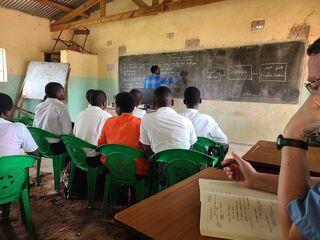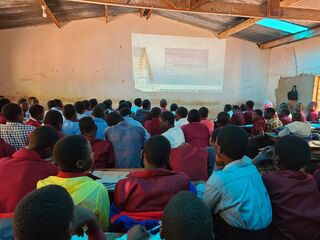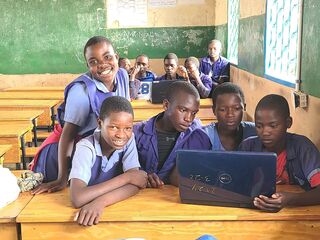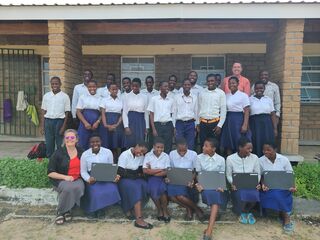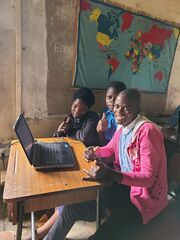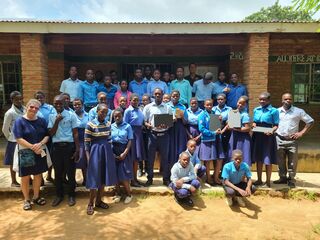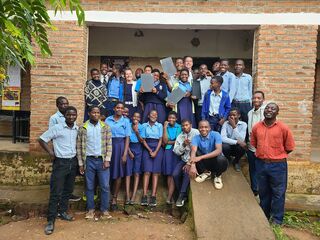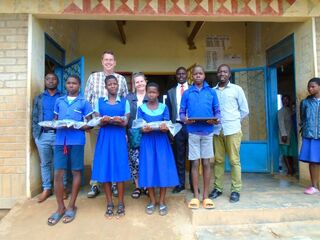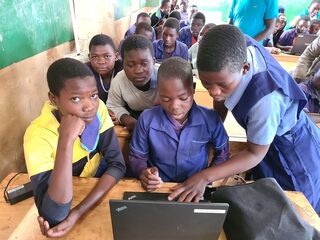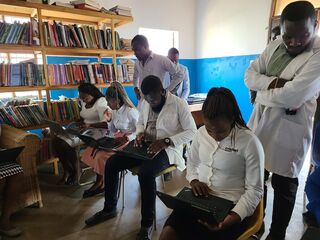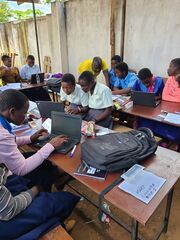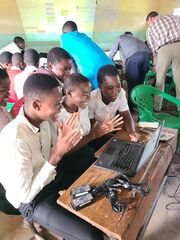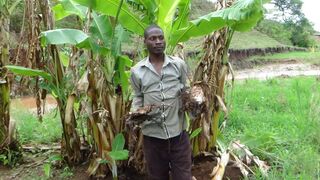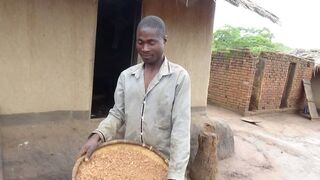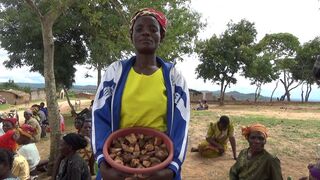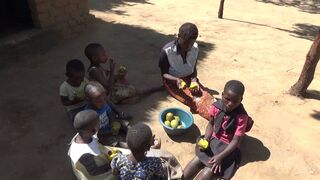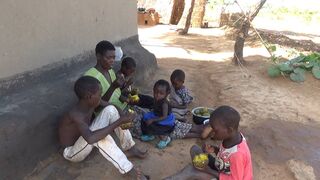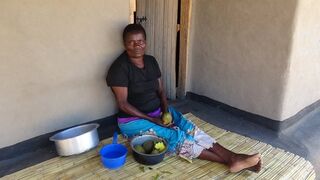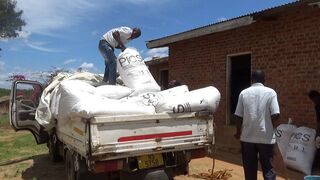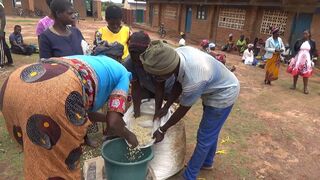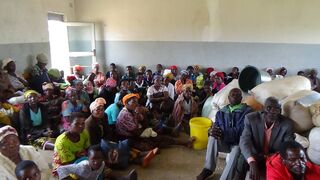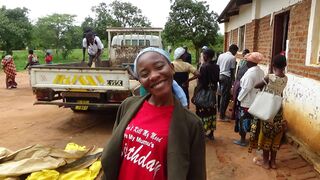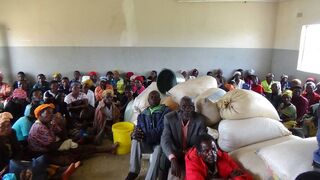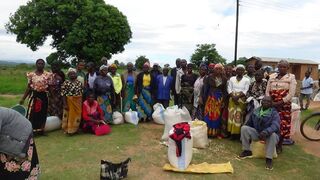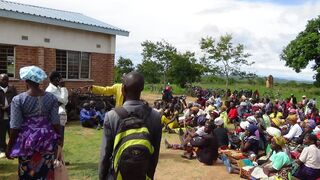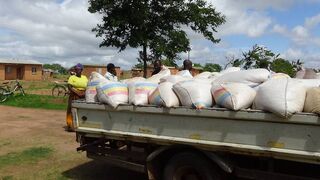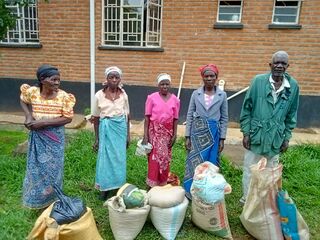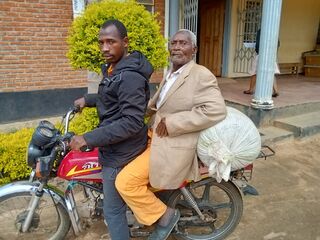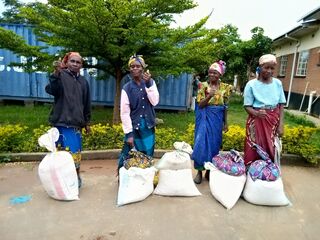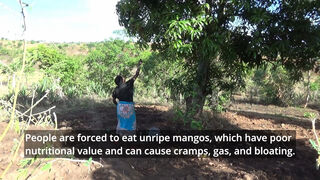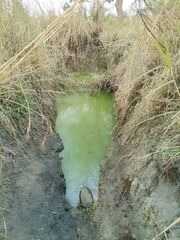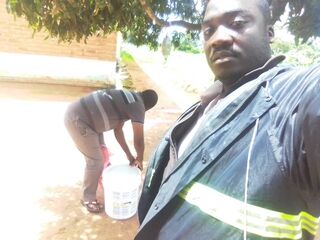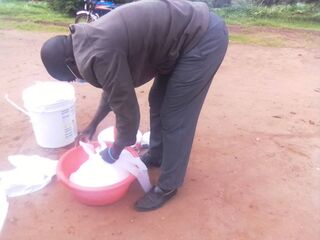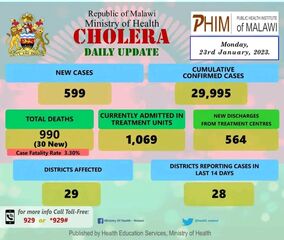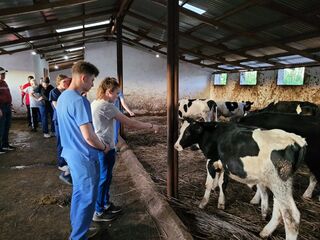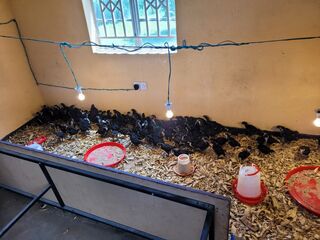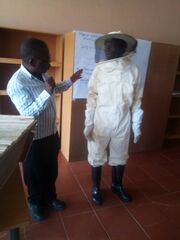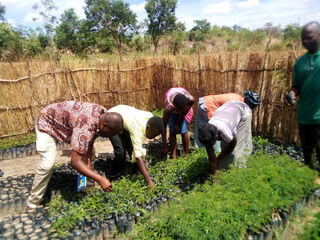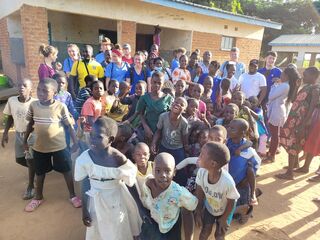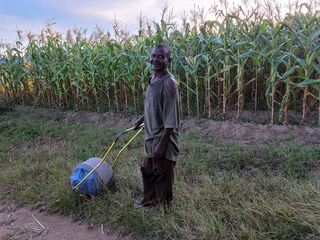Our President and Founder, Dr. Brian Lisse gave a run down on the status of Bridges to Malawi to the First Parish Church of Stow and Acton on Saturday June 7, 2025. Thanks to Stow TV for recording it.
Author: btmadmin
Malawi 2025 video
Please enjoy this short video from this year’s trip.
November 13, 2023
We’d like to take a brief moment to congratulate the winner of this year’s high school contest, Josie Blake. Josie has won a free trip to Malawi with our medical mission team when we go in April 2024.
A total of 11 students from Nashoba Regional High School and Hudson High School participated in the contest. We hope the 10 who didn’t win will be able to come along with us as well.
IT Education and Laptop Donation Trip – Jan 2023
For further details and photos, see our January 2023 Detailed Trip Presentation slides.
Trip Objectives:
- Communicate program objectives to beneficiary school leadership
- Observe school’s implementation of Information/Computer Technology (ICT) studies
- Evaluate solar power systems
- Add projector and 5 additional laptops to each school
- Offer professional development (PD) to beneficiary school teachers
- Enhance female student ICT studies and access
- Offer model lessons to beneficiary school students
- Build collaborative relationships within Malawi
- Build efficiencies within ICT technician team
To learn more about our technology initiatives, visit the Laptop Donation/Education page.
Bridges to Malawi January 2023 Presentation
The above video is Brian’s latest annual update presentation given to the Stow Lions Club.
January 19, 2023
Thought you all might like to see a video done by a local Malawian (hence the spelling errors,etc.) about our nonprofit Bridges to Malawi (BTM) efforts to fight an ongoing famine in Malawi. Please note that whenever the word “beneficiaries” is used, it means an entire family (usually 7 people), not just one individual. – Brian
We also have some photos to further illustrate the food situation.
… And some more photos showing our efforts to fight cholera with water chlorination.
January 14, 2023
We’ve received the following updates from Peter Minjale:
- The famine is worsening. He wants another $12,000 USD to fight it. He is working on a Lions International grant proposal to get funding beyond that. We are currently feeding close to 15,000 people right now.
- The cholera epidemic is worsening. There have now been over 750 deaths and over 13,000 cases nationwide (530,000 cases projected). Kasungu District, including the city, has been spared due to our ongoing chlorination efforts since August. Peter says the District had no cases till this week when 1 person became ill.
- The government of Malawi is very interested in our IT education project and is sending teachers to our area to help bolster our efforts.
- The government of Malawi and World Bank approached Peter with a grant proposal to help our dairy project go to the next level with enough money to, among other things, purchase about 230 more heifers.
- The premiere agricultural research facility in Malawi has expressed interest in our lavender initiative, hoping to bring it to other parts of the country if we are successful. So far about 50% of our seeds have germinated (which is awesome because no seeds germinated here when we planted them).
- So far the rains have been good.
- Reforestation, bamboo, hydroponic project, chicken pass on, microcredit bank, land lease and cows and ploughs projects are all going well.
Malawi Food Crisis 2022
Giving Tuesday 2022
November 10, 2022
Dear Friends of Bridges to Malawi,
Giving Tuesday is rapidly approaching and we hope you will remember us when it comes time to donate this year. Our organization relies entirely on the generosity of donors like you, and we spend 100% of your donated money directly on our projects. All administrative costs are paid for by our board members.
2022 has been a particularly difficult year in Malawi because the rains started late and ended early, leading to an ongoing famine affecting the entire country. In addition, there has also been a serious cholera outbreak. Both of these problems are expected to continue until at least May of 2023. Bridges
to Malawi has diverted funds from our projects and raised extra money to help combat these two serious troubles.
To help prevent cholera, we have increased our water source chlorination efforts so that instead of protecting 150,000, we are now protecting 530,000. Although the cholera rate has been increasing elsewhere in Malawi, there have been no cases where we work, AND we are the only organization (government or otherwise) providing this service in the Kasungu District. This cost us an additional $3,000 so far, but we will need $8,000 to continue this life saving protection through to May 2023.
After distributing the complete content of Cindy’s House (our grain storage facility), we then spent $3,000 on famine mitigation efforts, mostly purchasing and then distributing badly needed protein fortified food. Thus far we have been able to support about 4500 people in need. Our Malawian colleague, Peter Minjale, estimates that an additional $100,000 may be necessary to effectively combat this problem in the Kasungu East District alone.
Despite the above, we have still accomplished a tremendous amount thus far in 2022 as we have continued to advance our programs.
Below is a brief list outlining the status of some of our programs.
- Chicken Pass-On
- 1000 donated to 200 households benefiting about 1400 people
- Goat Pass-On
- 579 donated. Estimated 2,700 farm families benefited with over 15,000 goats
- Beekeeping
- 126 beneficiaries in 8 villages
- Production: 12 kg (about $60) yield per farmer harvesting every 2 months.
- 5th harvest ongoing (avg per capita income Malawi $550)
- Dairy Project
- Herd: 71 cows, including 9 at Kadsikizi, 13 pregnant by sex semen AI at present
- Total beneficiaries: 62
- Total calves born: 31 (19 females/12 males)
- Production: Avg 13 Liters Milk per day (current price $0.95 per liter). Farmers also making and selling
- Yogurt on a regular basis
- Cows and Ploughs
- 43 Cows 7 Villages 1400 people benefit
- 5 Magoye Rippers and 10 traditional plows
- Laptops
- Donated to 10 schools (2 are on the grid, so didn’t need solar)
- Total: 111 laptops, averaging 10 per school. Over 1650 students have benefited
- Schools Solar Powered
- 9 Total (8 secondary and 1 primary)
- Land Lease Beneficiaries
- Current: 48 farmers (approximately 330 people)
- Overall total beneficiaries since project began: 640 families (approximately 4200 people)
- 80% have bought their own land
- 94% have graduated from the program since they no longer need assistance
- Micro-Credit Loan Beneficiaries
- Current: 150
- Total since project inception: 670 families (4690 people) avg loan $25, payback rate 98%
- WELLO Waterwheels
- Donated all 700
- Ultrasound devices
- Donated 6 Total, including 4 Butterfly IQs
- Hydroponic Systems
- 1 demonstration project so far.
- Reforestation Groves
- Total trees planted since 2017: 330,000 (not including 390,000 more in process for 2022)
- Total number of villages/groves: 130
- Bamboo Groves
- Total planted: 8800 (3800 from seed 2019 and 6,000 seedlings in 2020)
- Total number of village/groves: 17
- Artemisia Plants
- Donated total 4200 in 90 villages. Malaria rates have decreased in these villages from
To donate, please visit our Donation page.
Thanks again and Happy Holidays!
Sincerely,
Brian Lisse
Shake It So – The Women of Mphepo Chimtali
Video credit: Sickiey (Sikayenera Chewengo)
In the above video, our friend Jonathan Slate tells us about his experience visiting Malawi and founding his organization, Shake It So. Jonathan has partnered with Bridges to Malawi and is hoping to grow the project with other organizations (not just those focused on Malawi). So please give him and Shake It So your support!


